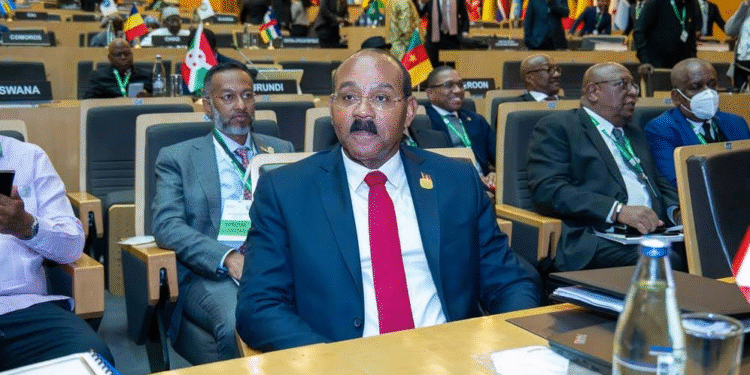Prime Minister Gaston Browne has hinted that Antigua and Barbuda will not vote in favour of the proposal before the International Maritime Organisation (IMO) on the issue of a net-zero emissions for large ships, a key factor in world supply chain and trade.
In an interview with Theresa Goodwin of ABS on Monday, PM Browne said Antigua and Barbuda favours a deferral in the adoption of the proposal as it will likely affect cost of living for the people of this country.
He said on this particular issue, both Antigua and Barbuda and the United States are aligned.
“Like the United States, we are equally concerned about this transition and we think that there should be a deferral and if there is no deferral, then we clearly will abstain. We will not vote against it because at the end of the day, we are one of the most strident climate advocates as we have been advocating for net-zero, so we do not want to undermine our overall position on this transition to renewables and to achieve net-zero as soon as possible. But this particular initiative could result in significant shipping costs that would result in increasing cost-of-living and it’s from that standpoint that we are likely to abstain,” he explained.
The prime minister was quick to explain further that on this issue, Antigua and Barbuda was not responding to any alleged threat from the United States. Instead, it was taking a position as a sovereign state looking after its own self-interest.
“We certainly cannot support the initiative at this time,” he declared.
From its website, the IMO reported that it has achieved another important step towards establishing a legally binding framework to reduce greenhouse gas (GHG) emissions from ships globally, aiming for net-zero emissions by or around, i.e close to 2050.
The IMO Net-zero Framework is the first in the world to combine mandatory emissions limits and GHG pricing across an entire industry sector.
Approved by the Marine Environment Protection Committee during its 83rd session (MEPC 83) from 7–11 April 2025, the measures include a new fuel standard for ships and a global pricing mechanism for emissions.
These measures, set to be formally adopted in October 2025 before entry into force in 2027, will become mandatory for large ocean-going ships over 5,000 gross tonnage, which emit 85% of the total CO2 emissions from international shipping.



